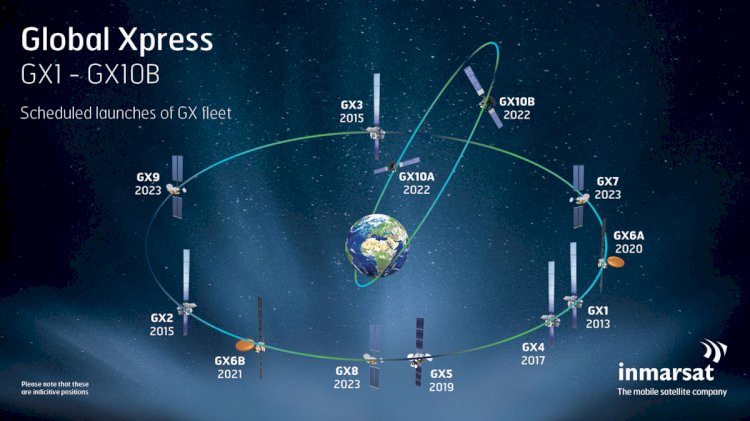The new Global Xpress (GX) payloads support the rapidly growing demand among both commercial and government users for seamless, reliable, high-speed mobile broadband services in the Arctic and throughout the world.
In commercial markets, the GX Arctic payloads are designed to specifically address the needs of merchant fleets, fishing vessels, commercial airlines and the energy market, where high-speed mobile broadband connectivity is driving both major operational and efficiency improvements and supporting the introduction of new business models.
For the Government sector, the new GX payloads will provide continuous, assured communications to tactical and strategic government users operating in the Arctic region, including customers in the USA, Canada, Scandinavia and other Arctic regions.
Inmarsat’s new Arctic capabilities will further increase network flexibility and efficiency through multi-beam, high-throughput capacity that can be fully dialled up and down depending on customer demand in the region.
Rupert Pearce, Chief Executive Officer, Inmarsat said:
“I would like to thank Space Norway for providing this opportunity to deliver dedicated GX capacity in the Arctic region. It is the home to one of our most advanced research and development centres, located at the Norwegian Maritime Competence Center (NMCC) based in Ålesund. Announcement with Space Norway is a further example of the strength of this relationship… As part of the existing Inmarsat GX network, customers will now have seamless, high-quality mobile broadband services as they travel in and out of the Arctic region. “I am delighted to say that Inmarsat will be the only provider of the mobile broadband connectivity our customers need in the Arctic region.”
Jostein Rønnerberg, CEO of Space Norway said:
“In close collaboration with Inmarsat and government partners we are about to get in place a strategically important capacity for all those currently operating in the Arctic without access to broadband capabilities. Our focus is on the users – fishermen, researchers, rescue personnel, coast guard, military and others. We are proud to join forces with Inmarsat and we are confident that this collaboration will be welcomed by those operating in the High North”.
Inmarsat’s current GX fleet is comprised of four operating satellites (GX1-4) and is planned to be augmented to seven satellites by mid-2021 with the launch of a further three GX payloads (GX5 and GX6A & B) which are currently under construction and scheduled for launch in 2019, 2020 and 2021 respectively. Inmarsat recently announced the addition of a further three GX satellites (GX7, 8 & 9) to the global GX constellation.

Photo: Inmarsat
With the two Arctic satellites announced yesterday (GX10A, GX10B), Inmarsat’s aggregate constellation will therefore be comprised of twelve payloads.



